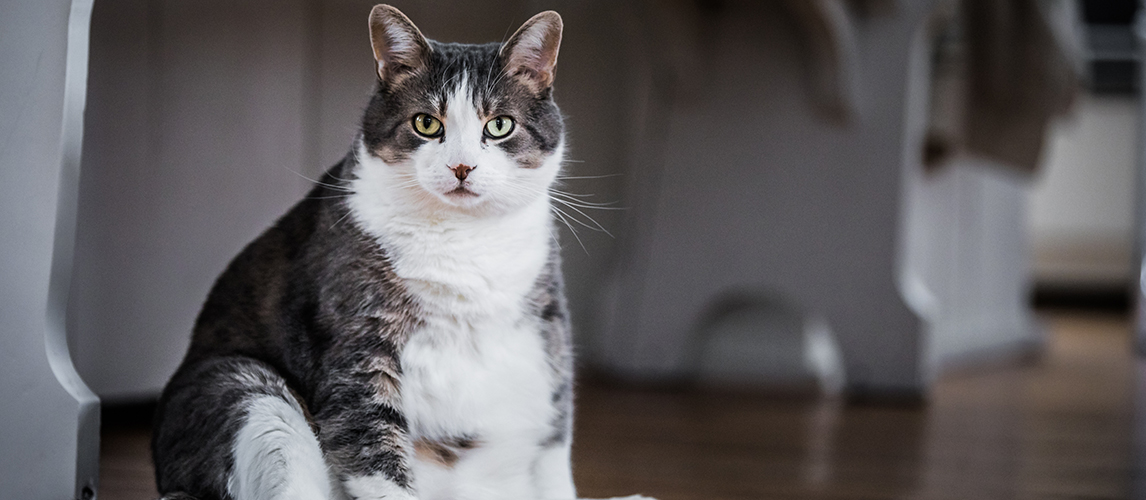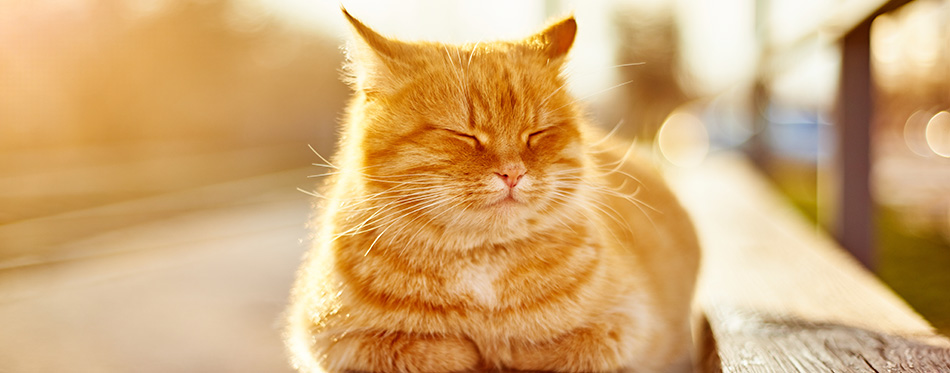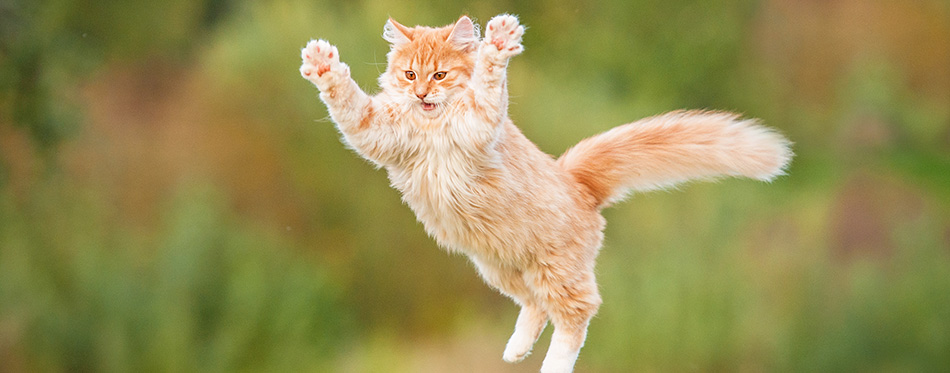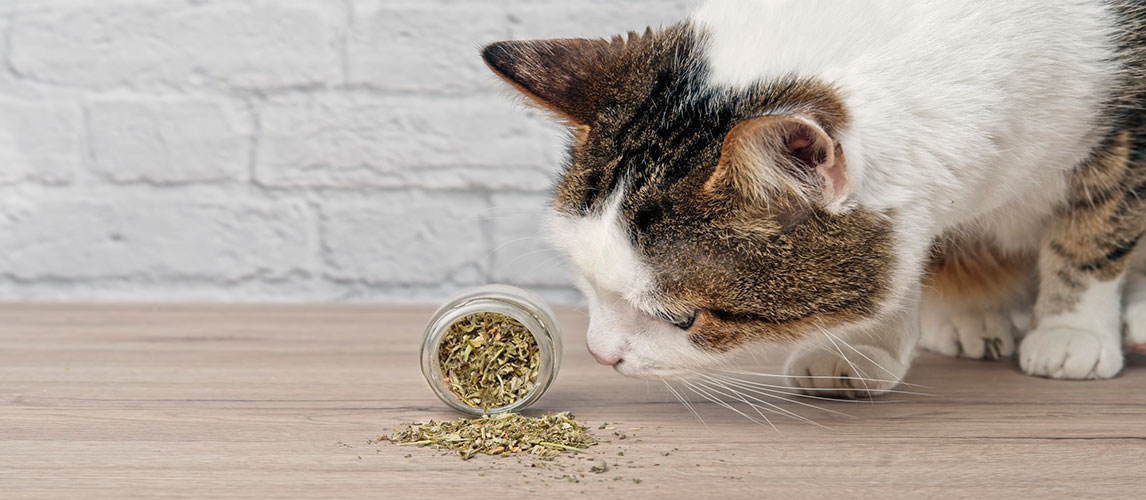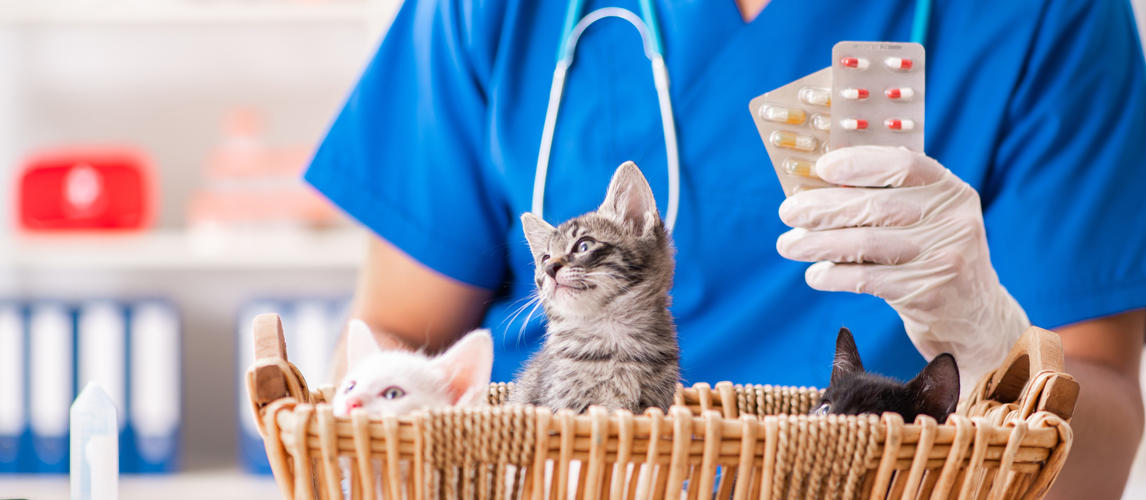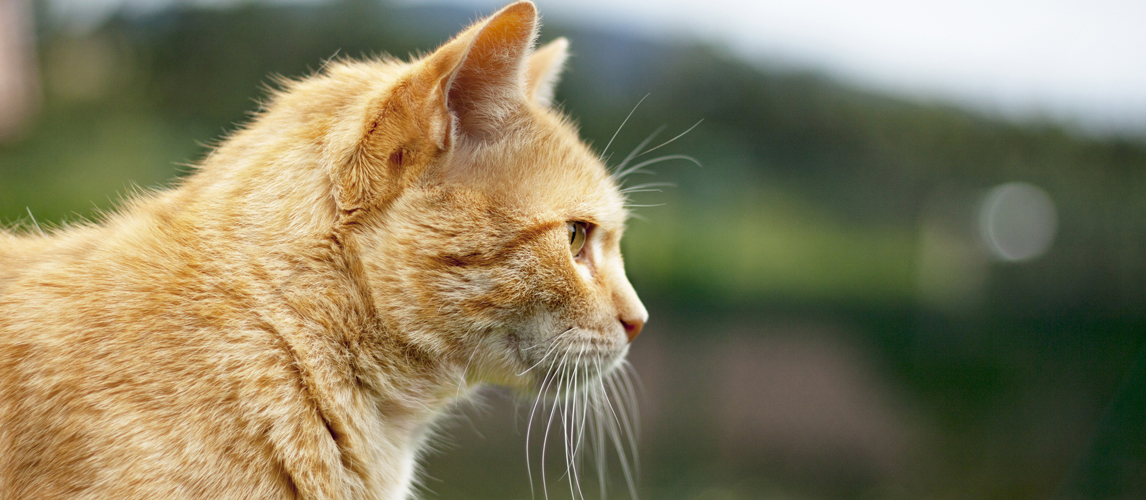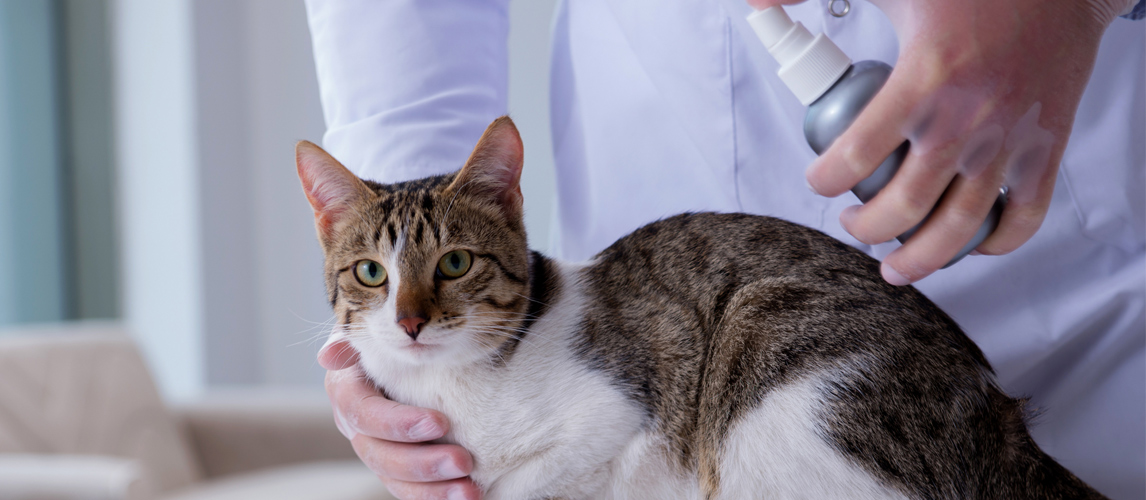The spraying behavior of cats is most commonly thought of as being a male problem. Associated with the classic idea of male cats spraying to mark their territory, it surprises many to discover that female cats spray, too. So, why do female cats spray? Is there any way to stop urine spraying cats? We lay out the facts for you right here. So, read on to discover everything there is to know about urine spraying female cats.
What Is Urine Spraying and Why Do Cats Spray?
While every cat will naturally need to pee, urine spraying is very different. For starters, it is not a sign of needing to empty their bladder! The normal release of urine in cats requires the cat to squat a little, and will usually only ever be done in the litter box.
Cat spraying, however, is very different. It will usually be done up against a wall, tree or other vertical surfaces. You may also notice that the tail stands on end when cats spray, and quivers a little. The cat will then release a short spray of urine across the surface. Both male and female cats spray, and it is usually not linked to problems around the litter box.
Spraying cats are using their scent glands to create a distinct scent that transmits information to other cats. One of the biggest reasons why a cat is spraying is to communicate this information, by way of marking their territory. For this reason, it is much more common for multi-cat households, or those neighborhoods where many cats reside, to spray more frequently.
How Do I Know If My Cat Is Spraying?
Cats are meticulous creatures – so you can be sure that, if they’re spraying urine away from their litter box, there’s a good reason for it. One of the biggest tell-tale signs that a cat has been working to mark their territory is through the smell. Urine scent smells much less pungent than the deposit left when a cat is spraying to mark their territory. Thus, it gives off the unmistakable information that this is where the cat lives, and where other cats can find them, if they have a problem with that (or want to mate).
Naturally, this can often mean that the neighbor cat to your house can get into a bit of a tussle when they both seek to mark their territory. This is especially true with males, as they are often more territorial – and less likely to have been neutered. Since cats have no system to work out disputes with each other, they rely on spraying to relay the information for them.
As well as this, spraying allows both female and male cats to reveal when they were last in the area. Each article that has been sprayed by the adult cat will smell stronger, the more recently that the cat has sprayed. Thus, the pungency of the urine is also a way of relaying information to other cats in the area.
Of course, the usual suspects should be ruled out first and foremost. Any time your cat is urinating outside of the litter box, this is referred to as “inappropriate elimination”. Inappropriate elimination means nothing to a cat that is having problems with their health and wellbeing, or if there is a multi-cat household in which they need to assert their dominance.
To tell the difference between spraying and any underlying conditions, it’s worth checking for the possibilities written below. If these sound like your cat, it’s always worth a trip to the veterinarian before trying to treat urine spraying as a result of territorial behavior or stressors.
Why Do Female Cats Spray?
So, if none of the above issues is the problem, then just why do female cats spray? The answer – like anything in the animal kingdom – can be the result of multiple different needs, wants and issues. Cats and their pet parents should be aware that it’s not just male cats that spray. Indeed, this urination is something that any type of cat – including big cats – and any sex cat will do.
Does Your Cat Have A Urinary Tract Infection?
One of the most common causes for why female cats spray is a urinary tract infection (UTI). In this case, it may not be that the cat is spraying as such, but rather passing small amounts of urine at a time, in unusual areas. These urine spots are more likely to be dispersed infrequently, rather than in the same areas of the home.
Check out our article on the Best Cat Food For Urinary Tract Health.
Are There Any Environmental Stressors?
Animals are all incredibly sensitive to changes in their environment. These changes often result in stress for your animal. As such, one of the key reasons why your pet may be feeling fancy-free with their urination is that they’re stressed. If you’re wondering why do female cats spray when they’re the only cat in the household, be aware that some cats are simply sensitive to the environment.
Pet parents may be aware of environmental stressors that can affect their kitty. For example, redecorating the house, or even something as simple as moving furniture, can cause conflict in your kitty.
Is Your Cat In Heat?
Most often, if you search for “why do female cats spray”, you’re going to find this to be one of the first results that come up. Why? Because it’s the most common reasons why female cats spray! Being in heat is one of the main causes of female cat marking. Purely because they want to spread the important information that they are ready to mate.
If your female cats spraying everything in sight, seemingly without reason or something being wrong, this should be your first port of call. Every animal is driven by the instinct to mate, and the best way to stop a large litter of kittens heading your way is to get them spayed or neutered.
Does Cat Spray Smell Different From Urine?
Absolutely. Cat urine is mostly made up of waste product, combined with water that your cat drinks throughout the day. Meanwhile, cat sprays are made up of a much lower amount of urine. Instead, it is mostly the scent itself, mixed in with some urine.
This means you can usually tell if your cat is spraying, because the smell will be the first thing you notice. While the marking is handy to spread information between cats, it’s certainly not so pleasant or communicative to us humans.
How Do You Stop A Cat From Spraying When Marking?
The crux of this blog is to help you understand how to care for your cat, even when they’re happily urinating around the house. Regardless of the area your cat thinks needs a new surface spray, the resolutions are pretty much the same.
Up The Cleaning Ante
Keep an eye on the main locations that your cat seems to favor when they spray. Whether it’s a wall, the leg of your furniture or any other surface, cats will always play favorites. The lingering scent on these pieces of furniture is one of the reasons why female and male cats will return to spray, time after time.
So, the first thing you’ll need to do is find these spots and act as soon as possible. If you’re feeling particularly meticulous, you can even use a black light to find the source. Once you’ve figured out which areas your cat like to spray their scent on, it’s time to get to cleaning.
As we know, cats have incredibly sensitive noses. So cleaning any marking areas is key to stopping your cat from spraying that particular section of the home. There are a couple of ways to clean your furniture, including home remedies and specialist products on the market. In any case, and whichever method you choose, a good scrub can work wonders on any household article.
Use Pheromones
While people tend to be more vocal with other people, cats prefer to let their scent glands do the talking for them. The pheromones present in the spray will always call cats back to the same spot, to remark. This is especially true in male cats that haven’t been neutered. As we know, cats like to remind people of their time spent in their territory, as well as where they’ve been.
Feliway is just one of the pheromone sprays on the market, which can help with this. By covering up your cats’ pheromones, it can create a change in your cats’ behavior. Not only will your cat no longer spray around that area, you may also notice a more relaxed attitude and generally more positive behavior for your pet.
Take a look at our review of the Best Cat Calming Sprays.
Add Extra Litter Boxes
While one litter box is an essential part of cat care, many litter boxes make for a happy cat. Having these items around the house can encourage a confused cat to go pee, rather than spray. A good rule of thumb is to have one additional litter box for every cat you have. So, for those in multi-cat households, be aware that could mean you need a couple of litter box options. For example, if you have 2 cats, then you’ll need 3 litter boxes.
Be sure to place litter boxes in various parts of the house, so that each cat can happily use their litter box without encroaching on another cats’ area. Don’t forget to keep the litter box clean – but to leave a little litter behind, when these are changed. Your cat will have a tendency to stick to the same litter box, and leaving this litter behind helps each cat know which one is theirs.
You may also like our guides on the Best Self-Cleaning Litter Boxes and Best Sifting Litter Box.
Spay and/or Neuter Cats
We’re a big proponent of responsible breeding – but spaying and neutering your cats is about so much more than avoiding a surprise litter. All the pheromone sprays and cleaning in the world won’t stop a cat from spraying if they’re looking for a mate. Save the pressure and stress of accidentally breeding cats by taking your cat to a veterinarian, as soon as they are old enough.
Both males and females need to be spayed or neutered. So, just because your cat might not be the one coming home with the kittens, doesn’t mean you don’t have a responsibility to other pet owners!
Medications
If you’ve tried separating the territory up, changing up the litter box options, spraying every wall and surface with products and your cat is still spraying, then it’s time to go back to the veterinarian. Even if nothing came up previously on initial tests, sometimes your cat will need some extra care. If nothing else, going to your cat veterinarian will rule out the possibility of something sinister.
Supplements
These are especially helpful for cats who are prone to UTIs. If the issue is less with spraying behavior and more about the constant need for urination, some supplements can help. Cranberry treats are an option of over-the-counter help – but there are plenty of different items available to cats who are prone to spraying.
Simply feed these to your cat as a treat, or mix them into their food bowl – or even add a few drops of your preferred supplement to their water bowls. Whichever you choose, your animals are likely to be grateful for your help in healthy urination behavior.
Sources:
- Gary Landsberg, DVM, Cat Behavior Problems – Marking and Spraying Behavior, VCA Hospitals
- Urine Marking (Spraying), The MSPCA–Angell
- Urine Marking in Cats, The ASPCA
- Cat Spraying in House, Best Friends Animal Society
Note: The advice provided in this post is intended for informational purposes and does not constitute medical advice regarding pets. For an accurate diagnosis of your pet's condition, please make an appointment with your vet.

